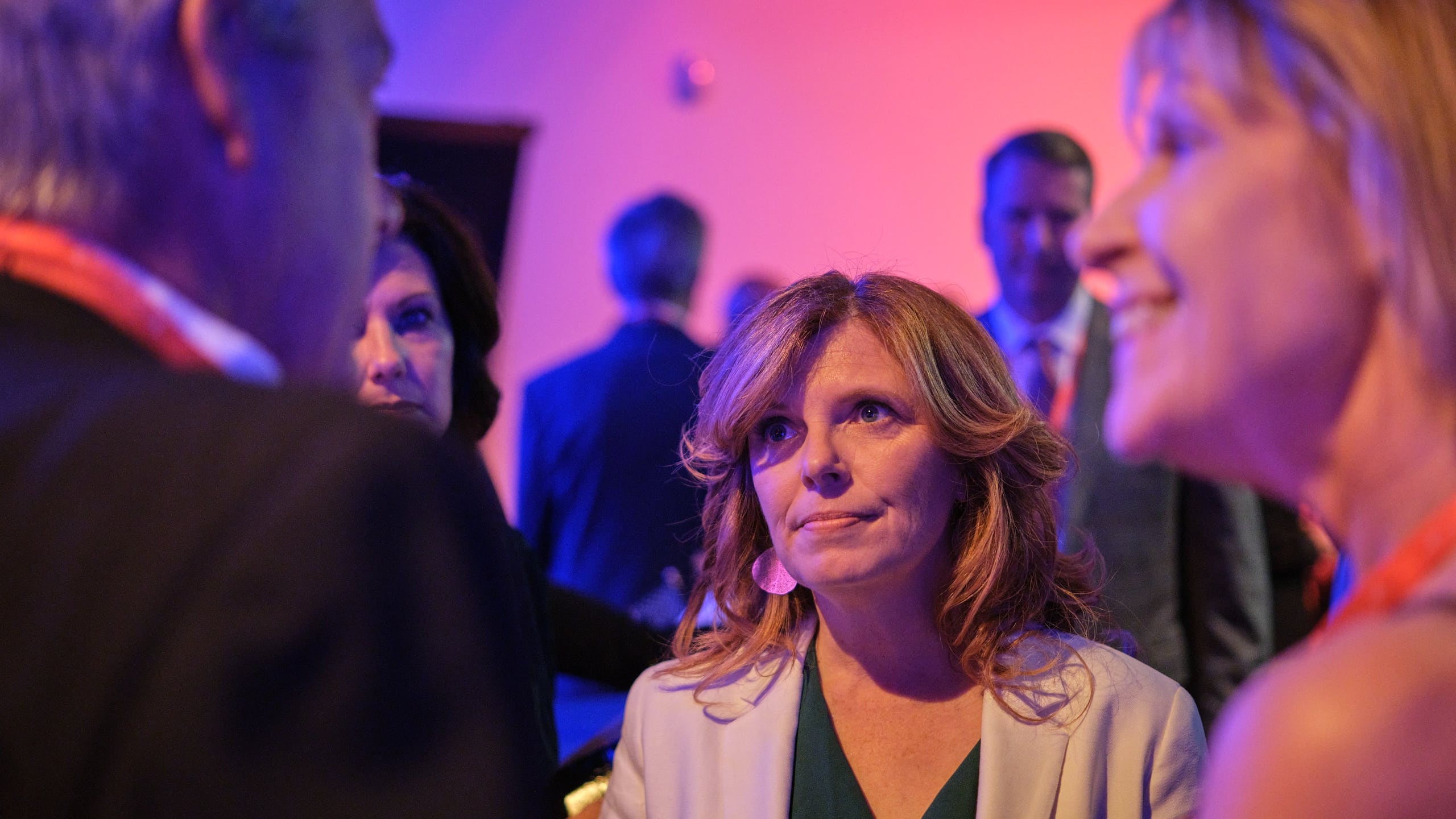In a series of recent campaign ads that appear targeted at urban voters and voters of color, Republican Christine Drazan has made an aggressive pitch for Democratic Party regulars to consider crossing party lines to vote for her on Nov. 8.
This year, Oregonians are ready to turn the page and vote for change.
— Christine Drazan (@ChristineDrazan) October 25, 2022
Watch my newest TV ad here 👇 #orpol pic.twitter.com/WAZ5EEuKUy
But that pitch is at odds with a response Drazan gave earlier this year in a candidate election questionnaire from the Oregon Family Council.
The OFC asked candidates whether they support “including religious exemptions in legislation to prevent restrictions of religious freedom in hiring and insurance mandates.”
Drazan said “yes.”
Conservative Christian organizations ask such questions in part because they don’t want religious employers to have to pay the insurance costs for gender affirmation treatment or abortions.
Katie Wertheimer, a spokeswoman for Democrat Tina Kotek, says Drazan’s position is at odds with the impression Drazan’s recent ads seek to convey.
“Drazan’s pledge to the Oregon Family Council would endanger protections for all LGBTQ+ Oregonians,” Wertheimer says. “Based on her response, she could easily state that no future employment or insurance protection bill could cross her desk unless it included a ‘religious exemption’ to allow discrimination. Put another way, if you have a religiously affiliated insurer or employer and you’re LGBTQ+, say goodbye to safe employment or adequate health care under a Drazan administration.”
John Burke, a spokesman for Drazan, says that if Drazan is elected, she’ll abide by the statutes on the books.
“Oregon law prohibits discrimination based on sex, sexual orientation, and gender identity,” Burke says. “As governor, Christine is committed to upholding the law. Christine believes faith-based organizations should have the right to operate in a manner that is consistent with their values, so long as their approach does not infringe on Oregonians’ civil rights.”
Burke says that, in fact, it is Kotek who is intolerant.
Kotek “believes in aggressive mandates that force people to choose between their faith and the government,” he says. “That’s the wrong approach for Oregon.”
As an example, Burke cited the Reproductive Health Equity Act of 2017, which guaranteed access to abortions for anybody who needs one. (In fact, that bill did exempt religious employers and insurers, such as the Providence Health Plan, that weren’t previously offering abortion benefits.)
Wertheimer says that based on Drazan’s response to the Oregon Family Council question, even if she honored existing laws as governor, Drazan would have leeway as the state’s top executive to slow-play civil rights protections that conflicted with religious beliefs.
“She could hire state agency directors who do not prioritize implementation of the Oregon Equality Act, Oregon’s law that prohibits discrimination in public accommodations like housing, employment and schools,” Wertheimer says. “So, for example, if an LGBTQ Oregonian faces discrimination, the state agencies under her control could refuse to do anything in response.”
Ballots for the Nov. 8 election must be deposited at official drop boxes by 8 pm or postmarked by that day.
